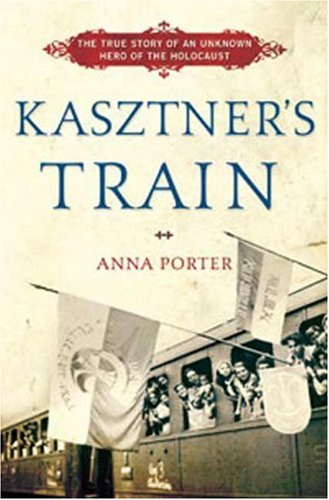Kasztner's Train: The True Story of an Unknown Hero of the Holocaust
CHEAP,Discount,Buy,Sale,Bestsellers,Good,For,REVIEW, Kasztner's Train: The True Story of an Unknown Hero of the Holocaust,Wholesale,Promotions,Shopping,Shipping,Kasztner's Train: The True Story of an Unknown Hero of the Holocaust,BestSelling,Off,Savings,Gifts,Cool,Hot,Top,Sellers,Overview,Specifications,Feature,on sale,Kasztner's Train: The True Story of an Unknown Hero of the Holocaust Kasztner's Train: The True Story of an Unknown Hero of the Holocaust

Kasztner's Train: The True Story of an Unknown Hero of the Holocaust Overview
The heroic story of the “Hungarian Oscar Schindler” who saved thousands of Hungarian Jews from certain death at the hands of the Nazis, only to be accused of collaboration and assassinated in Israel twelve years after WWII ended. Oscar Schindler’s and Raoul Wallenberg’s efforts to save people from Nazi extinction are legendary; Rezso Kasztner, by contrast, is practically unknown, even though he may have been the greatest rescuer of Jews during World War II. He was also the most controversial, and that, along with the relative lack of focus on events in Hungary toward the end of the war, has no doubt led to his anonymity. Now, with the publication of Anna Porter’s remarkable chronicle, Kasztner’s achievements are in full view. When the German army invaded its ally Hungary in March 1944, followed soon after by Adolf Eichmann and his SS, Rezso Kasztner and a small group of Zionist activists stood in the way of mass deportations. They had met the well-informed Schindler, providing him with funds for food and clothing, and had been involved in previous efforts to rescue Jews from Slovakia and Poland. Now, in meeting after meeting with Eichmann and other SS officers, Kasztner negotiated for freedom, exploiting the Nazi weaknesses of greed and need—“blood for goods,” as the Nazis called it—organizing a train out of Hungary for almost 2,000 while several thousand more were protected in work camps in Austria. Inevitably he saved some and not others. After testifying at the Nuremberg trials, Kasztner emigrated to Israel where, in 1956, he was stunningly convicted of collaborating with the Nazis more than a decade before. As he awaited the appeal that would ultimately exonerate him, he was assassinated by right-wing activists in Tel Aviv on March 4, 1957. Based on interviews with those who were on the train and with family members of those denied a place on it, as well as documents and correspondence not previously published, Anna Porter tells the dramatic full story of one of the heroes of the twentieth century.

